Electricity is a fundamental part of our daily lives, powering everything from our homes to our workplaces. And at the heart of every electrical system is the humble electrical cable. These unassuming wires are the unsung heroes that carry the current from the power source to the various devices and appliances that we rely on every day. When it comes to choosing the right electrical cable for your needs, there are a few key factors to consider. The first and most important consideration is the type of cable you need.
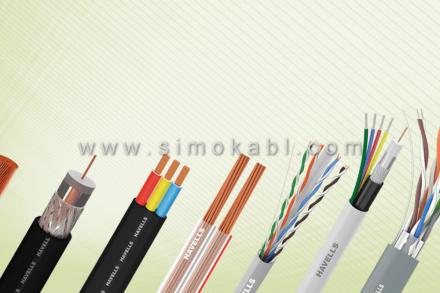
.
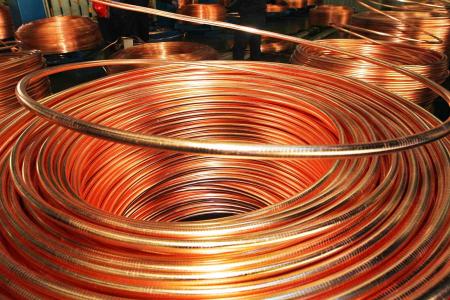 There are several different types of electrical cables available, each with its own unique characteristics and uses. Understanding the differences between these types of cables can help you make an informed decision when it comes time to purchase. One of the most common types of electrical cables is known as a twisted pair cable. This type of cable consists of two separate conductors that are twisted together. The twisting helps to reduce electromagnetic interference, making twisted pair cables ideal for use in data transmission applications. These cables are commonly used in Ethernet networks and telephone lines. Another popular type of electrical cable is known as coaxial cable. Coaxial cables consist of a central conductor surrounded by a layer of insulation, a layer of conducting material, and an outer insulating layer. Coaxial cables are known for their high bandwidth and low signal loss, making them ideal for use in cable television and internet connections. For applications that require a high level of durability and resistance to environmental factors, armored cables are often the best choice. Armored cables are constructed with an additional layer of protection, typically made of steel or aluminum, that provides enhanced durability and protection from physical damage. These cables are commonly used in outdoor applications or in environments where the cable may be exposed to harsh conditions. When it comes to powering appliances and devices, power cables are the go-to choice. Power cables are designed to carry high levels of current from the power source to the device, making them essential for a wide range of applications. These cables are typically thicker and more robust than other types of electrical cables, allowing them to safely carry the high levels of current required by power-hungry devices. In addition to these common types of electrical cables, there are also specialized cables designed for specific applications. For example, fire-resistant cables are designed to maintain their integrity in the presence of fire, making them ideal for use in buildings where fire safety is a top priority. Similarly, underwater cables are designed to withstand the harsh conditions found in underwater environments, making them essential for applications such as underwater power transmission.
There are several different types of electrical cables available, each with its own unique characteristics and uses. Understanding the differences between these types of cables can help you make an informed decision when it comes time to purchase. One of the most common types of electrical cables is known as a twisted pair cable. This type of cable consists of two separate conductors that are twisted together. The twisting helps to reduce electromagnetic interference, making twisted pair cables ideal for use in data transmission applications. These cables are commonly used in Ethernet networks and telephone lines. Another popular type of electrical cable is known as coaxial cable. Coaxial cables consist of a central conductor surrounded by a layer of insulation, a layer of conducting material, and an outer insulating layer. Coaxial cables are known for their high bandwidth and low signal loss, making them ideal for use in cable television and internet connections. For applications that require a high level of durability and resistance to environmental factors, armored cables are often the best choice. Armored cables are constructed with an additional layer of protection, typically made of steel or aluminum, that provides enhanced durability and protection from physical damage. These cables are commonly used in outdoor applications or in environments where the cable may be exposed to harsh conditions. When it comes to powering appliances and devices, power cables are the go-to choice. Power cables are designed to carry high levels of current from the power source to the device, making them essential for a wide range of applications. These cables are typically thicker and more robust than other types of electrical cables, allowing them to safely carry the high levels of current required by power-hungry devices. In addition to these common types of electrical cables, there are also specialized cables designed for specific applications. For example, fire-resistant cables are designed to maintain their integrity in the presence of fire, making them ideal for use in buildings where fire safety is a top priority. Similarly, underwater cables are designed to withstand the harsh conditions found in underwater environments, making them essential for applications such as underwater power transmission.
..
 No matter what type of electrical cable you need, it’s important to choose a high-quality, well-made cable from a reputable manufacturer. Cheaper cables may be tempting, but they are more likely to fail prematurely or cause electrical problems. Investing in a high-quality cable may cost a bit more upfront, but it can save you money and headaches in the long run. In conclusion, electrical cables are the unsung heroes of our modern world, quietly carrying the current that powers our lives. By understanding the different types of electrical cables available and choosing the right one for your needs, you can ensure that your electrical systems operate safely and reliably. Whether you need a twisted pair cable for your network, a coaxial cable for your television, or an armored cable for outdoor use, there is a perfect cable out there for you. So next time you’re in need of an electrical cable, remember to choose wisely and invest in a high-quality cable that will serve you well for years to come. The importance of selecting the right electrical cable cannot be overstated, as the safety and reliability of your electrical system depend on it. Understanding the different types of cables available and their unique characteristics is crucial in making an informed decision. When considering which type of electrical cable to choose, it’s essential to also take into account the environmental conditions in which the cable will be used. For example, if the cable will be installed outdoors or in a location where it may be exposed to moisture or extreme temperatures, it’s important to select a cable that is designed to withstand these conditions. Some cables come with weatherproof or UV-resistant coatings to protect against environmental factors, ensuring longevity and reliability in harsh conditions. In addition to environmental considerations, the specific requirements of your application will also play a significant role in determining the type of cable you need. For instance, if you are looking to install cables in a high-traffic area where they may be subject to physical wear and tear, choosing a durable and robust cable like an armored cable would be a wise decision.
No matter what type of electrical cable you need, it’s important to choose a high-quality, well-made cable from a reputable manufacturer. Cheaper cables may be tempting, but they are more likely to fail prematurely or cause electrical problems. Investing in a high-quality cable may cost a bit more upfront, but it can save you money and headaches in the long run. In conclusion, electrical cables are the unsung heroes of our modern world, quietly carrying the current that powers our lives. By understanding the different types of electrical cables available and choosing the right one for your needs, you can ensure that your electrical systems operate safely and reliably. Whether you need a twisted pair cable for your network, a coaxial cable for your television, or an armored cable for outdoor use, there is a perfect cable out there for you. So next time you’re in need of an electrical cable, remember to choose wisely and invest in a high-quality cable that will serve you well for years to come. The importance of selecting the right electrical cable cannot be overstated, as the safety and reliability of your electrical system depend on it. Understanding the different types of cables available and their unique characteristics is crucial in making an informed decision. When considering which type of electrical cable to choose, it’s essential to also take into account the environmental conditions in which the cable will be used. For example, if the cable will be installed outdoors or in a location where it may be exposed to moisture or extreme temperatures, it’s important to select a cable that is designed to withstand these conditions. Some cables come with weatherproof or UV-resistant coatings to protect against environmental factors, ensuring longevity and reliability in harsh conditions. In addition to environmental considerations, the specific requirements of your application will also play a significant role in determining the type of cable you need. For instance, if you are looking to install cables in a high-traffic area where they may be subject to physical wear and tear, choosing a durable and robust cable like an armored cable would be a wise decision.
…
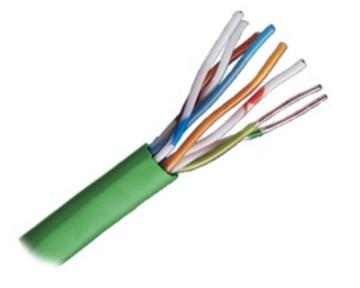 The added layer of protection provided by armored cables helps to prevent damage and ensure the continued operation of your electrical system. For applications that involve the transmission of sensitive data or signals, such as in telecommunications or industrial control systems, choosing the right cable can have a significant impact on performance. Twisted pair cables, with their design that reduces electromagnetic interference, are often the preferred choice for these applications. By minimizing signal degradation and ensuring reliable transmission, twisted pair cables help maintain the integrity of the data being transferred. It’s also important to consider the length and voltage requirements of your electrical system when selecting a cable. Different types of cables have varying capacity to carry current over long distances without experiencing significant voltage drop. For longer runs or high-powered devices, choosing a cable with a higher voltage rating and thicker conductors is essential to ensure safe and efficient operation. In summary, selecting the right electrical cable is a critical decision that can have a lasting impact on the performance and safety of your electrical system. By understanding the different types of cables available, considering environmental factors, and assessing the specific requirements of your application, you can make an informed choice that meets your needs and ensures the reliable operation of your electrical system. When it comes time to purchase electrical cables, be sure to choose a reputable supplier that offers high-quality products and reliable customer service. Investing in quality cables from a trusted manufacturer may involve a higher upfront cost, but it will pay off in the long run with improved performance, durability, and peace of mind. In conclusion, electrical cables may seem like simple components, but they play a crucial role in the functioning of our modern world. By choosing the right type of cable for your needs and ensuring that it meets the necessary requirements, you can maintain a safe and reliable electrical system that powers your daily life. So next time you’re in need of electrical cables, remember to consider all the factors discussed here to make an informed decision and invest in the quality and performance of your electrical system.
The added layer of protection provided by armored cables helps to prevent damage and ensure the continued operation of your electrical system. For applications that involve the transmission of sensitive data or signals, such as in telecommunications or industrial control systems, choosing the right cable can have a significant impact on performance. Twisted pair cables, with their design that reduces electromagnetic interference, are often the preferred choice for these applications. By minimizing signal degradation and ensuring reliable transmission, twisted pair cables help maintain the integrity of the data being transferred. It’s also important to consider the length and voltage requirements of your electrical system when selecting a cable. Different types of cables have varying capacity to carry current over long distances without experiencing significant voltage drop. For longer runs or high-powered devices, choosing a cable with a higher voltage rating and thicker conductors is essential to ensure safe and efficient operation. In summary, selecting the right electrical cable is a critical decision that can have a lasting impact on the performance and safety of your electrical system. By understanding the different types of cables available, considering environmental factors, and assessing the specific requirements of your application, you can make an informed choice that meets your needs and ensures the reliable operation of your electrical system. When it comes time to purchase electrical cables, be sure to choose a reputable supplier that offers high-quality products and reliable customer service. Investing in quality cables from a trusted manufacturer may involve a higher upfront cost, but it will pay off in the long run with improved performance, durability, and peace of mind. In conclusion, electrical cables may seem like simple components, but they play a crucial role in the functioning of our modern world. By choosing the right type of cable for your needs and ensuring that it meets the necessary requirements, you can maintain a safe and reliable electrical system that powers your daily life. So next time you’re in need of electrical cables, remember to consider all the factors discussed here to make an informed decision and invest in the quality and performance of your electrical system.
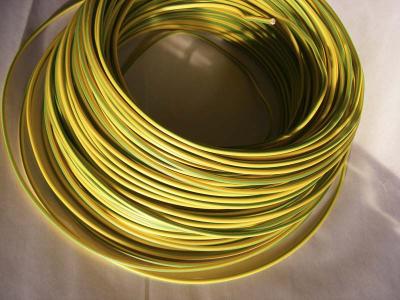

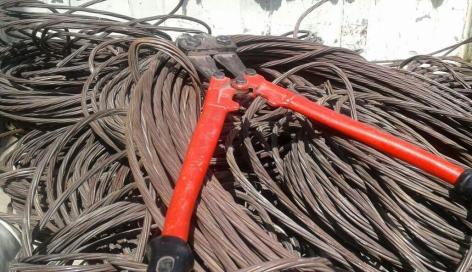
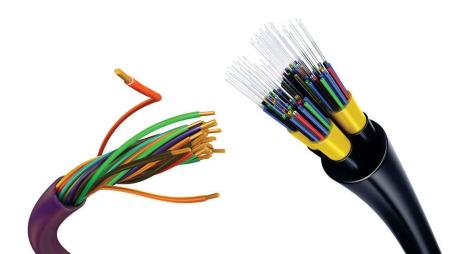
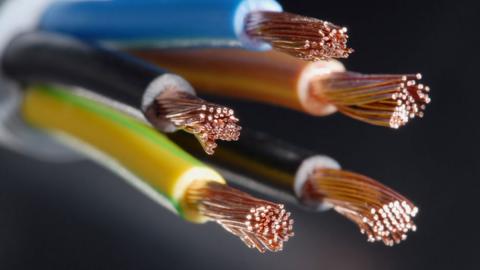

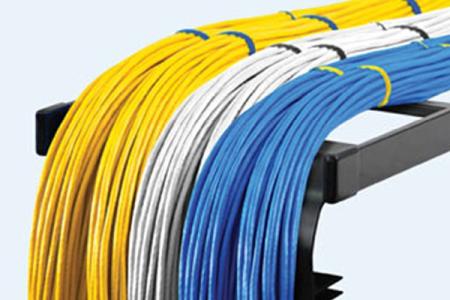
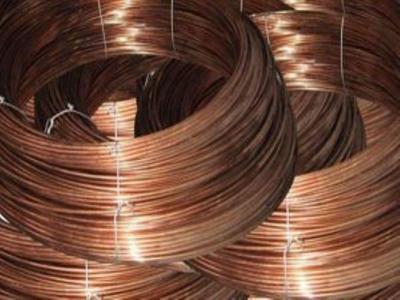
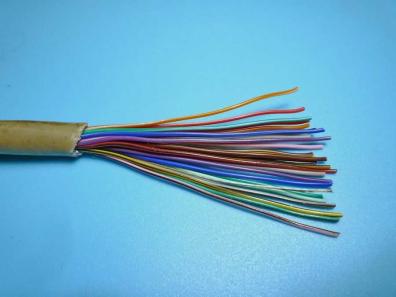
Your comment submitted.